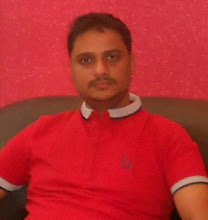The eclipse of Shiva Singh’s power gave a signal Dronwara king f° r the total disintegration of the house Puradjtya 0 f the Oinwara and also for the grad- ual but complete occupation of Mithila by the Muslim. After his defeat, his family members, under the care of Vidyapati, shifted to a village Raja-Banauli in Nepal, where Shiva Singh’s friend Puraditya “Arjun Vijayee” was ruling. Here again the tradi- tional accounts are conflicting. From Likhnavali, it is evident that Puraditya had carved out an independent kingdom or a Janapada in Saptari after having slain his enemy Arjun. He is called Dronawara Mahipati. He defeated all his enemies. We have discussed above the local tradition of a civil war for the throne between the two branches of Kameshwara dynasty. Bhava Singh’s son, Tripura Singh, has also been associated with the murder of Ganeswara. Arjun Singh was the son of Tripur Singh. Perhaps the family feud was at the root of this trouble and taking advantages of this ugly situation, Puraditya c ( 158 ) succeeded in killing him and creating for himself a small independent Janapada in Saptari, a district in the Nepal territory. Arjun is mentioned in the Ram Bhadrapur manuscript and one Amara is men- tioned in the Padavali. Both Arjun and Amara were sons of Tripur Singh. Ashoka pillar at Luriya Nandan Garh in Champaran contains an inscription dated V. S. 1556 (1499 or 1500 A. D.) which reads “Nripa-Narayan Suta Amar Singh’’, This Amar Singh is no other than brother of Arjun Singh. These two brothers were probably local chieftains and were defeated by Puraditya. After Arjun, Amar exercised some political powers and that is evident from the above inscription. They all belong to the same dynasty and naturally Vidyapati’s occa- sional references to these princes are not unnatural. The word “Baudhau-A'risansa-yate” is still con- troversial. Mm. Umesh Mishra thinks that Arjun was a Budhist and was ruling in Saptari. It is said that when Vidyapati reached Puraditya’s capital and got dug a tank and called a meeting of the learned Pandits to celebrate a yajna, the Buddhist of Arjun’s kingdom created disturbance. That led to war between Arjun and Puraditya. Arjun was defeat- ed and Saptari Pargana was conquered by Puraditya. He has not cared to give any authentic source in support of these arguments and hence no credence can be given to this conclusion arrived at by the learned scholar. There is no room for any doubt to accept that Arjun was a son of Tripur Singh. What seems probable is that before going to Puraditya, 159 ) Vidyapati tried to seek shelter with Arjun and when he did not see any chance of getting any asylum there, he went to Shiva Singh's frimd Puraditya. As is evident from Vidyapati ’s activities, he did not feel happy and anyhow spent his time there. His genious was directed towards writing sample letters for ordinary persons and in copying out the Bhag- vata. He could not produce any original work of repute. From the term “Baudhau-Nrisansa-ydte , '’ it appe- ars that Arjun’s behaviour towards his kinsman was cruel. That supports our contention. He belong- ed to a branch of the Oinwara, whose record is not praiseworthy and whose descendant could never get a chance to rule. In keeping wi th the tradition of his father Tripur Singh, he showed scant respect to his cousin’s wife, Lakhima, when she needed help, after Shiva Singh’s arrest and under the circum- stances she took shelter with Puraditya. Another scholar, Dr. Sukumar Sena has used Baudhau in place of Bandhau — to suit his own argument, but he has emphatically pointed out that they were not Buddhists. Though attempt has been made to prove that this Arjun wasjayarjuna of Nepal, there is no evidence to support this point. According to Ben- dall Jayarjuna died in Nepal Samvat 502 (1382 A.D. ) While Vidyapati’s Likhnavali could not have been written earlier than L. S. 299 (1417-18 A. D. ) Thus there is no possibility of identifying Jayarjuna with Arjun of Likhnavali. Even if we accept the story, presented by Mm. Mishra, it may be interpreted ( 160 )
Thursday, May 9, 2019
Subscribe to:
Post Comments (Atom)

No comments:
Post a Comment